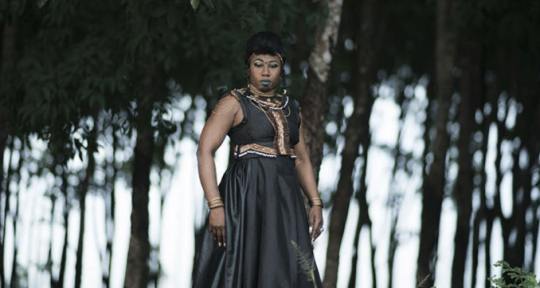|
The term “Afro-Futurism,” supposedly coined in 1993, but certainly put into practice philosophically and otherwise way before then, has been receiving much attention over the last few years. And it makes sense too. When a group of people- jailed, shot by police, denied fair housing, wages, or equity with regards to all manners of health and educational issues- finds itself systemically deprived of justice, a look to sci-fi and other ways to use the future as a way to escape the present is one logical reaction to various forms of oppression. The idea of space travel, both figurative and literal, is what fueled the music and writings of master bandleader, composer, and keyboard wizard Sun Ra; the idea of a mothership landing as a means of salvation and freedom was a major part George Clinton’s P-Funk collective’s shows in the mid-70s too. More recently, the concept has found its way into the music of flautist Nicole Mitchell and producer Flying Lotus. It only makes sense that Canadian-Malian artist Djely Tapa would embrace the term as a way to update griot traditions as a form of feminism. She has harnessed rhythms and stories at their root, but delivered them coated in dub-y murk and trippy electronics.
Tapa grew up in Kayes, learning the music of the griots to whom she was related, all the while finding herself fascinated with Western culture. Eventually moving to Montreal to study Mechanical Engineering, she fell in with the cities massive African Diaspora and dug back into her griot-based roots. Eventually, she connected with Chadian-Canadian DJ AfrotroniX, who produced Barokan, her debut LP.
The track “Amafamu” is a fine example of her craft. The tune opens with a gorgeously distorted guitar lick before the not-quite-reggae pulse takes over, complete with echoed cymbal splashes and clipped guitar chanks. Tapa’s voice weaves and bobs, repeating the title in one of several Malian languages she uses for this album.
“Dya” is much more traditional, with its opening kora line, but still, treated percussion simmers in the background as Tapa calls out to a chorus’s response.
AfrotroniX’s imprint is likely most heavily felt on album opener “Future Tribe Art.” Here, Tapa’s voice is cloaked in metallic noise, echoing in and out of the mix, as bass and various hand drums battle it out for attention. Yet, percolating Malian blues and West African-derived melodies are never hidden; they’re merely married to electro. In this way, Tapa uses her connections to feminism and Afro-Futurism, as well as her geographical distance from her home country to pull a centuries-old music from its patriarchal origins and into the 21st century. The record has already won the Juno Award for best “world” music album of the year. And as many problems as this reviewer has with the term “world” used to describe non-western, often non-white recordings, Tapa, a French-speaking Canadian, making music that relies on her own Malian roots both lyrically and musically, is about as “world” as it gets. - Bruce Miller
|
